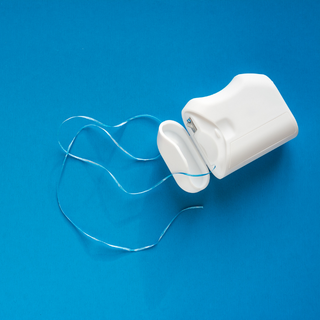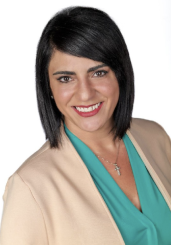
This language lesson is designed for 3 to 6-year-old children to guide them about the FLOSS spelling rule.
Spelling generalization rules is one of the most powerful tools that help children to form the correct spellings. Comprehending these rules makes the child well aware of the spellings and placement of the letters in a word.
The FLOSS rule is usually the first rule of spelling generalization to help children remember and understand when to double the final ‘f’, ‘l’, and ‘s; consonants at the end of certain words.
To learn the FLOSS rule, it is better that a child first understands the concept of blends, digraphs, short and long vowels, and syllables.
What is the FLOSS Rule for Spelling?
The Floss Spelling Rule states that if there is only one short vowel in a word, a single syllable and it ends with f, l, or s the last letter should be doubled. The easiest example of this rule is the word ‘Floss’ itself.
This generalization is called the FLOSS rule as the word itself follows this rule and also includes the letters f, l, and s to help the child remember the rule at ease.
Floss Rule Words
The following words should be read based on the FLOSS rule:
- Words with ff in the end
- Fl + u + ff = fluff
- P + u + ff = puff
The above words have a short vowel, a single syllable, and ends with f. The last letter ‘f’ is doubled.
Other examples of words that end with ff: off, stiff, staff, cliff, whiff, sniff stuff, scoff, cuff, scuff, bluff, gruff, jiff, huff, buff.
- Words with ll in the end
- H + i + ll =hill
- S + e + ll = sell
Here, again the words have a single closed syllable with a short vowel sound that is immediately succeeded by l. With FLOSS rule l is doubled.
Other examples of words that end with ll: spill, spell, fell, tell, yell, sill, fill, bill, mill, bell, still, well, dwell, swell, drill, ill, call, bull, jill, cell, dill, chill, doll, grill, pill, shell, skull, skill, smell, thrill, will, till.
- Words with ss in the end
- B + o + ss = boss
- M + e + ss = mess
Other examples of words that end with ss: miss, kiss, bliss, class, grass, bass, floss, mess, dress, toss, gloss, miss, pass, fuss, chess, mass, less, moss, hiss, press, cross, stress, guess.
- Words with zz in the end
In some words, z is also included as a part of the FLOSS rule. As there are only a few words that end with z, we do not add it to the basic rule. To memorize it, the children may call it the FLOSS-Z rule.
The following words can be read based on this rule–
- B + u + zz = buzz
- F + i + zz = fizz
Other examples of words that end with zz: jazz, frizz and fuzz.
FLOSS Rule Exception
There is always an exception to the rules. Here are some exceptions to the FLOSS rule:
- When a word carries a single syllable and ends with l or f but these letters are part of a blend, then the letter is not doubled. For example – half, self, wolf, gulf, calf.
- When a word carries a single syllable and ends with s immediately after a short vowel, but ‘s’ makes the sound of /z/, and the letter ‘s’ is not doubled. For example–is, has, and was.
- Shortened form of words does not have letters doubled at the end. For example – gas
Floss Rule Reading Readiness
To understand the FLOSS rule thoroughly, allow the child to first practice words with short vowels, blends, and single syllables. The following questions will be helpful in deciding which spelling should be used:
- Is this word one syllable?
- Is the vowel short or long?
- Do the letters f, l, and s immediately succeed with short vowels?
If the vowel sound is short, is there any blend that follows it or a single letter that can be doubled?
Give a lot of activities and reading to help the child understand the FLOSS rule, as this is usually the first generalization rule to be taught.
Activities to Help the Child Understand the FLOSS Generalization Rule
- Prepare a board game with some pictures that follow FLOSS rules and some that do not. Play this game with the child. Ask them to roll a die and whichever picture they reach, ask them to ask 3 questions for that picture-Is it one syllable? Does it have a short vowel? Does it end with the f, l, s, or z sound? A 3 yes will follow the FLOSS rule and the last consonant will be doubled, if no, then the last letter remains single. The children may say or write the spelling.
- Word hunt can also be played with the children. Allow them to search 8 to 10 words around a particular area or on a page of the book. Let them jot those words in a record sheet and mark the floss words based on the rule.
- An educator can also spell words or write words and ask questions to the students like why f, l, s, or z is doubled or not. This would help them comprehend their knowledge of generalization rules.
Note – Avoid using the words like doll, or wall, initially, where children may get confused with the sound of the vowel.
Repeat this activity by asking the child to practice the spelling generalization with different words in the English language.
Watch the video and allow the child to practice the FLOSS spelling generalization with different words in the English language. This helps to instill confidence in forming different words with the right spellings and doubling the last letter.
Related Videos:
- C and K Spelling Generalization
- ED Spelling Generalization
- Y Spelling Generalization
- G and V Spelling Generalization
To watch more language video resources, click here.
Video Created by: Justine McNeilly
Tags
- elementary level
- english language
- spelling generalization





